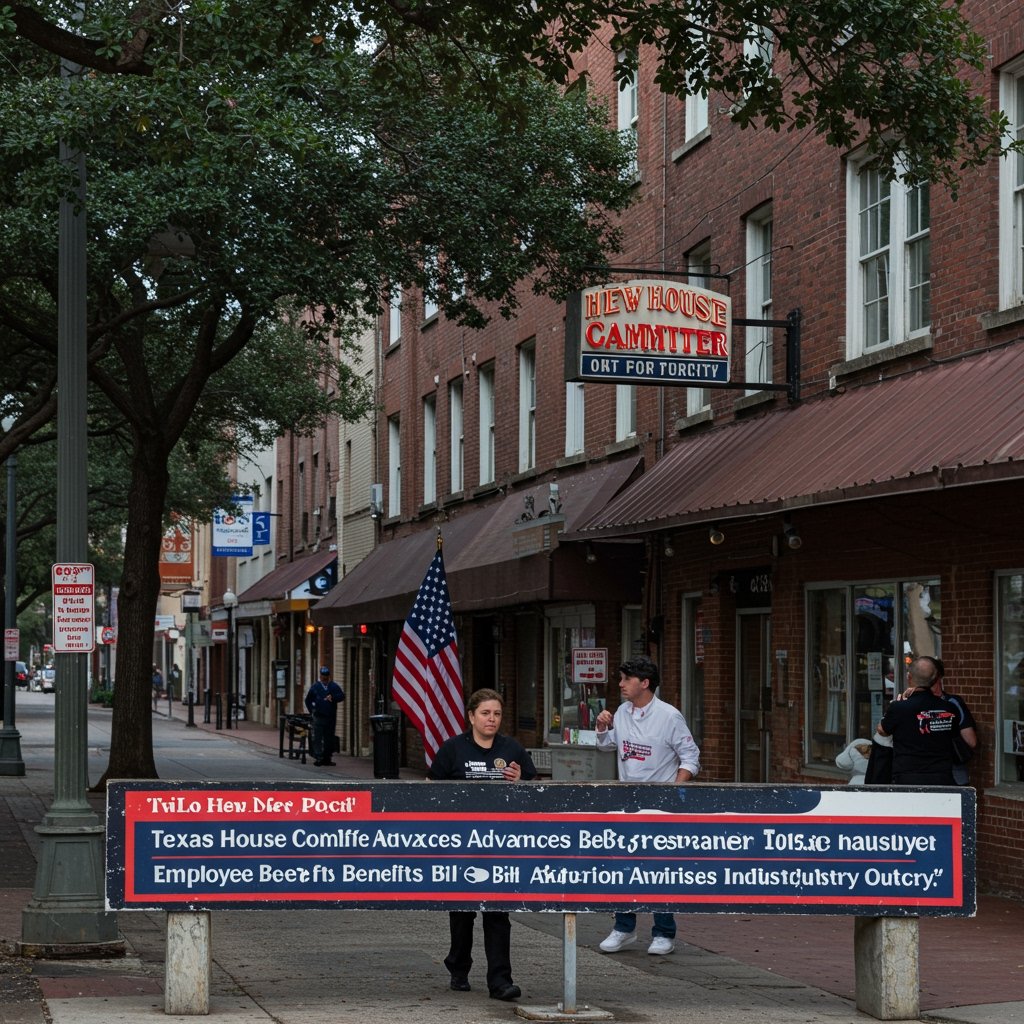Texas House Committee Advances Controversial Employee Benefits Bill
Austin, TX – A key Texas House committee has taken a significant step forward with legislation poised to impact restaurants across the state, approving HB 123, a bill that seeks to mandate new health benefit contributions from employers for their employees. The committee vote, which saw the measure advance with an 8-3 margin, immediately ignited strong opposition from the state’s leading industry group, raising concerns about potential economic repercussions.
Proponents argue that HB 123 represents a crucial effort to bolster the well-being of the hospitality workforce, a sector often characterized by lower wages and limited access to benefits. They contend that providing essential support through mandated contributions could not only improve the lives of restaurant employees but also help address persistently high turnover rates within the industry, creating a more stable and experienced workforce.
Industry Opposition Mounts
The Texas Restaurant Association (TRA) wasted no time in expressing its profound disappointment and condemnation following the committee’s decision. The organization issued a swift and stern warning that the bill, if enacted, could significantly increase operating costs for restaurants throughout Texas. The TRA specifically highlighted the potential threat to the viability of small businesses, which often operate on thin margins and could struggle to absorb the additional financial burden imposed by mandated benefit contributions. Major metropolitan markets, including Houston, San Antonio, and Dallas, were cited by the TRA as areas where the competitive landscape and existing cost pressures could make the impact particularly severe, potentially leading to closures or reduced employment.
“This vote is a direct threat to the livelihoods of thousands of small business owners and their employees across Texas,” stated a representative for the TRA. “Restaurants are still recovering from the economic challenges of recent years, and imposing new, unfunded mandates like this could push many over the edge. We urge the full House to consider the devastating impact this could have on communities and the state’s vibrant culinary scene, especially in critical markets like Houston, San Antonio, and Dallas, where the cost of doing business is already high.”
Arguments for Supporting Hospitality Workers
Conversely, supporters of HB 123, including labor advocates and employee groups, emphasize the necessity of the legislation in providing a safety net for a vital segment of the Texas economy. They argue that hospitality workers, who are the backbone of the state’s thriving food service industry, deserve access to basic health benefits. The current system, they contend, leaves many workers vulnerable and facing difficult choices between healthcare and other essential needs.
Advocates point to the potential long-term benefits for both employees and employers. For workers, access to health contributions could lead to improved health outcomes, greater financial stability, and a stronger sense of value and security in their jobs. For employers, while acknowledging the initial cost, supporters suggest that a healthier, more stable workforce could ultimately reduce hiring and training expenses associated with high turnover, improve productivity, and enhance overall service quality. They frame the bill as an investment in the human capital of the restaurant industry.
Legislative Process and Next Steps
The 8-3 vote in the key House committee signals initial momentum for HB 123 but does not guarantee its passage. The bill now faces the crucial next step: a vote before the full Texas House of Representatives. Should it pass the House, it would then move to the Texas Senate for consideration. The legislative process in Texas can be complex, and bills often undergo further amendments and debate as they move through chambers.
The debate surrounding HB 123 reflects a broader national conversation about the role of employers in providing employee benefits, particularly in service industries. The outcome of the vote before the full House will be closely watched by restaurant owners, employees, and industry stakeholders across the state, given the significant potential economic and social implications.
As HB 123 progresses, further testimony and lobbying efforts from both proponents and opponents are anticipated. The focus will now shift to the floor of the House, where representatives will weigh the competing arguments regarding the financial health of the restaurant industry and the well-being of its workforce. The final decision will shape the future landscape of employee compensation and benefits within Texas’s vast and varied restaurant sector, particularly impacting operations and employment dynamics in major urban centers like Houston, San Antonio, and Dallas, as well as smaller communities statewide.






